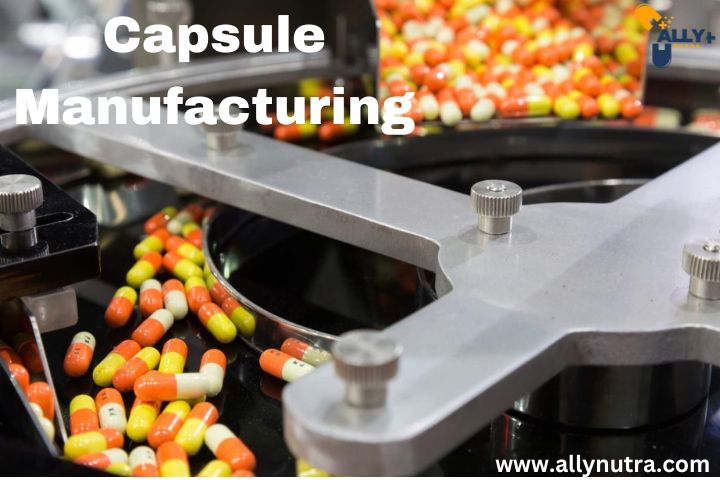Capsule manufacturing is an essential part of the pharmaceutical, nutraceutical, and health industries. The demand for supplements and medications in convenient, easy-to-administer forms has created a significant shift toward capsules, which offer precise dosage, ease of consumption, and better stability for many formulations. As the industry grows, so does the innovation surrounding capsule manufacturing. From advancements in technology to a focus on sustainability and quality control, capsule manufacturing has evolved into a highly specialized field that balances efficiency with product integrity.
Technological Advancements in Capsule Manufacturing
Over the years, capsule manufacturing has greatly benefited from technological advancements. High-speed capsule filling machines have increased production capacity, reducing costs and lead times. Automation systems play a vital role in improving efficiency and minimizing human error, while advanced quality control systems ensure consistency and safety in each batch. Technologies like 3D printing are now being explored for personalized dosages, allowing manufacturers to create capsules tailored to individual needs. Furthermore, innovations in capsule materials, such as plant-based or vegan-friendly options, have opened up new markets for health-conscious consumers.
Ensuring Quality and Safety in Capsule Production
Quality control is at the heart of capsule manufacturing. Capsules are designed to hold active ingredients such as vitamins, minerals, or medications that can affect a person’s health. For this reason, ensuring the purity, strength, and stability of each product is critical. Manufacturers are required to comply with Good Manufacturing Practices (GMP), which include stringent procedures and standards. These regulations ensure capsules are free from contamination, correctly dosed, and made with high-quality materials. Advanced testing methods, such as dissolution tests and stability studies, help ensure that the capsules will deliver their intended effects over time.
Sustainability in Capsule Manufacturing
Sustainability is becoming an increasing priority in capsule manufacturing as consumers and businesses are more conscious of environmental impacts. Many traditional capsules are made from gelatin, which comes from animal by-products. However, with the rise of plant-based and vegan alternatives, such as hydroxypropyl methylcellulose (HPMC), the industry has begun to shift toward more sustainable options. Additionally, eco-friendly packaging is being implemented to reduce plastic waste, and many companies are exploring biodegradable or recyclable materials. The push for sustainability is not only driven by consumer demand but also by regulatory bodies and environmental concerns worldwide.
The Future of Capsule Manufacturing
As the market for dietary supplements, functional foods, and pharmaceuticals continues to grow, the future of capsule manufacturing looks bright. Manufacturers will need to stay ahead of consumer preferences by embracing new technologies, improving product quality, and prioritizing sustainability. Personalized medicine, where patients receive tailored treatments, will likely drive further innovation in capsule production. Moreover, with the increasing focus on health and wellness, capsules will continue to be a preferred delivery system due to their convenience, versatility, and ease of ingestion.
In conclusion, capsule manufacturing is evolving rapidly, fueled by advancements in technology, a focus on quality control, and a push for sustainability. As the industry continues to innovate, it will play a crucial role in providing consumers with safe, effective, and environmentally friendly health solutions. The future of capsule manufacturing looks promising, and with ongoing innovation, the industry will continue to meet the growing demand for health and wellness products worldwide.
